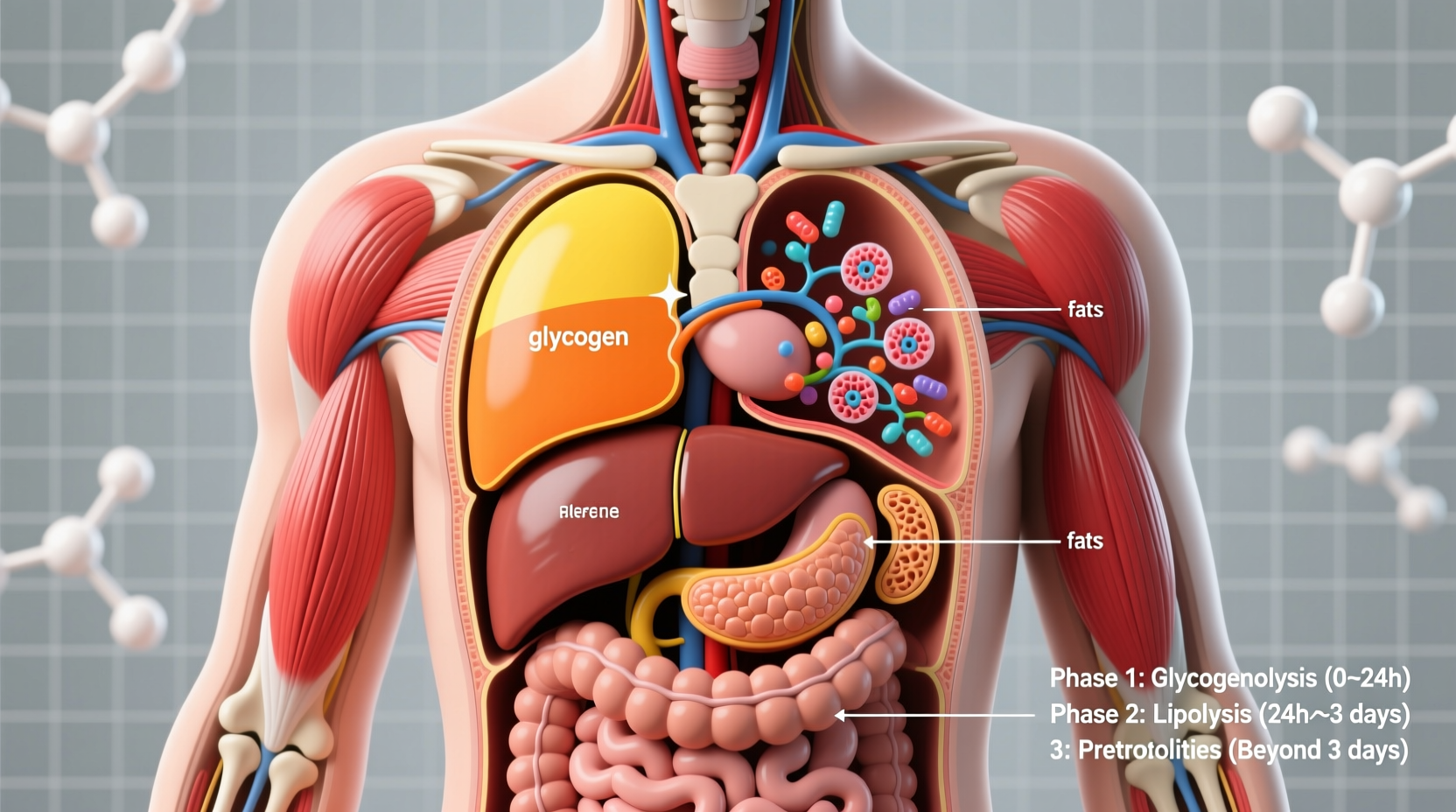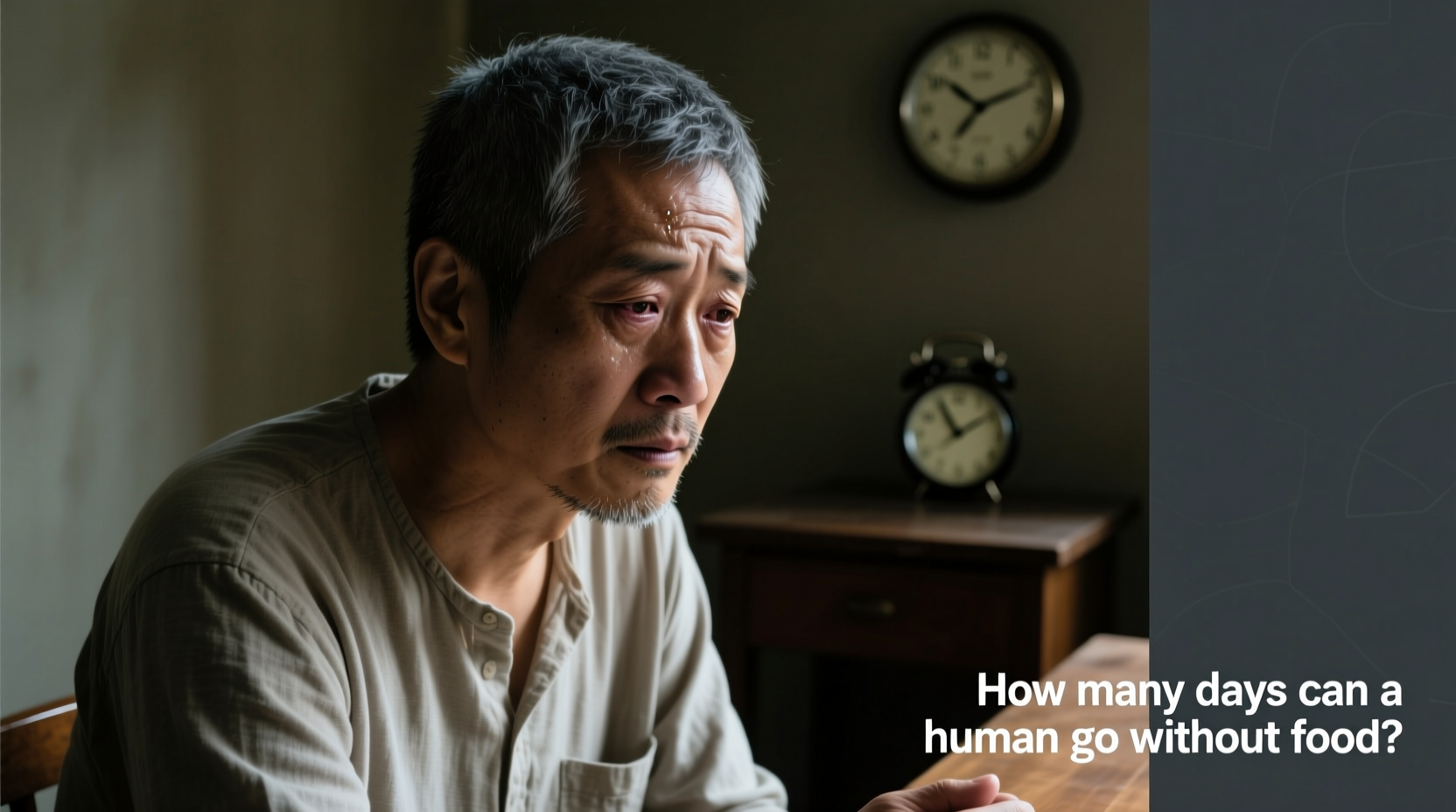Understanding human survival limits without food isn't just theoretical knowledge—it's vital information for emergency preparedness, medical decision-making, and recognizing dangerous fasting practices. This comprehensive guide delivers medically accurate information about starvation timelines, physiological processes, and critical safety considerations you need to know.
The Science Behind Human Starvation
When food intake stops, your body initiates a carefully orchestrated survival sequence. Initially, your system relies on glucose stored in the liver (glycogen), which typically lasts 24-48 hours. After this reserve depletes, your metabolism shifts to ketosis—breaking down fat stores for energy. This metabolic adaptation, documented in National Institutes of Health research, allows humans to survive significantly longer than many other mammals.
| Survival Factor | Increases Survival Time | Decreases Survival Time |
|---|---|---|
| Body Fat Percentage | Higher percentage (25%+) | Lower percentage (<10%) |
| Hydration Status | Adequate water intake | Dehydration |
| Environmental Conditions | Moderate temperatures | Extreme heat or cold |
| Pre-existing Health | Good cardiovascular health | Chronic illnesses |
Starvation Timeline: What Happens to Your Body
Medical research from the Mayo Clinic reveals a predictable physiological progression during extended fasting:
- Days 1-3: Glycogen stores deplete, causing hunger pangs, irritability, and initial water weight loss
- Days 4-7: Ketosis begins, with increased mental clarity but potential "keto flu" symptoms
- Weeks 2-3: Metabolism slows by 20-30%, muscle breakdown accelerates for protein needs
- Weeks 4-6: Organ function declines, immune system weakens significantly
- Week 8+: Critical organ failure becomes increasingly likely without intervention

Critical Context Boundaries: When Standard Timelines Don't Apply
Survival duration varies dramatically based on specific circumstances. The documented case of Angus Barbieri, who fasted for 382 days under medical supervision, demonstrates how professional monitoring and vitamin supplementation can extend survival far beyond typical limits. Conversely, individuals with low body fat or pre-existing conditions may face life-threatening complications in as little as 10-14 days.
Environmental factors significantly impact survival calculations. In extreme cold, the body burns calories faster to maintain temperature, potentially halving survival time. Medical emergencies like infections become substantially more dangerous during starvation due to compromised immune function.
Practical Safety Guidelines
While understanding starvation limits has academic interest, applying this knowledge requires extreme caution. The World Health Organization emphasizes that intentional fasting beyond 72 hours should only occur under medical supervision. Warning signs requiring immediate medical attention include:
- Dizziness that doesn't resolve with sitting
- Chest pain or irregular heartbeat
- Severe muscle weakness affecting mobility
- Prolonged confusion or disorientation
For those practicing intermittent fasting, maintaining proper hydration and electrolyte balance prevents many common complications. Registered dietitians recommend never exceeding 24-hour fasts without professional guidance, particularly for individuals with diabetes, eating disorders, or other metabolic conditions.
Real-World Applications and Misconceptions
Survival manuals often oversimplify starvation timelines, creating dangerous misconceptions. While water availability extends survival time significantly, complete dehydration reduces survival to just 3-4 days regardless of food reserves. The human body requires certain micronutrients that fat stores cannot provide, explaining why prolonged fasting causes specific deficiency diseases even with adequate calories from fat.
Emergency preparedness experts recommend maintaining at least a 14-day food supply for disaster readiness, recognizing that real-world survival scenarios involve additional stressors like injury, infection risk, and psychological strain that accelerate resource depletion.











 浙公网安备
33010002000092号
浙公网安备
33010002000092号 浙B2-20120091-4
浙B2-20120091-4